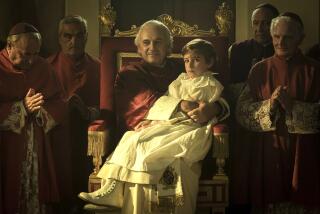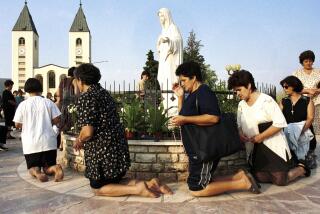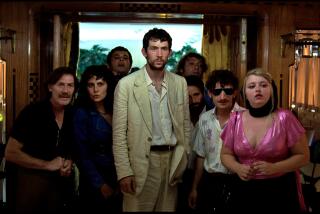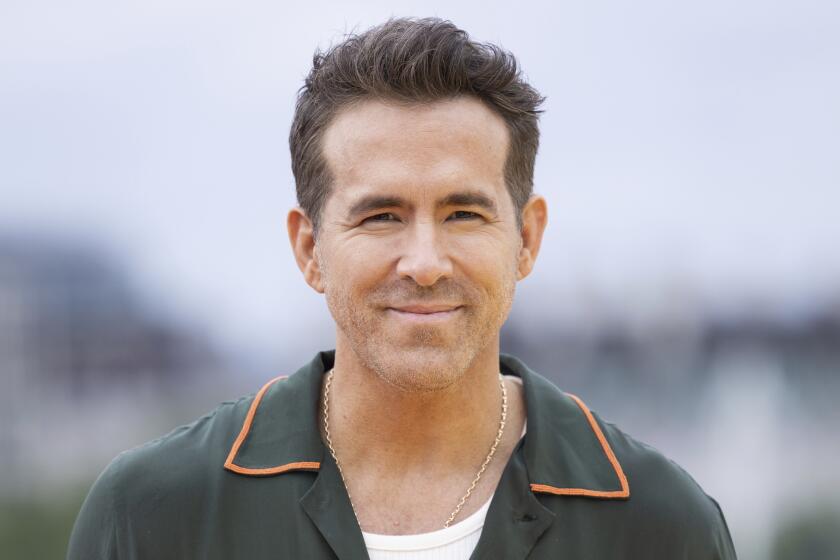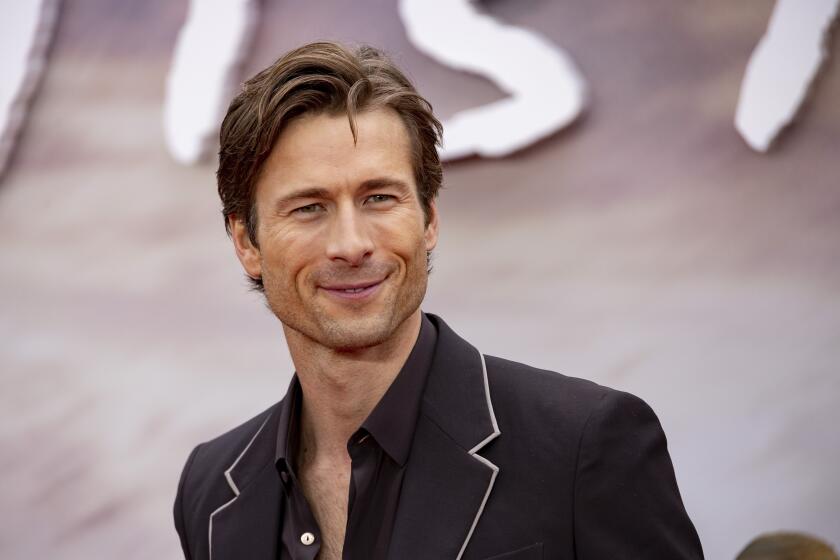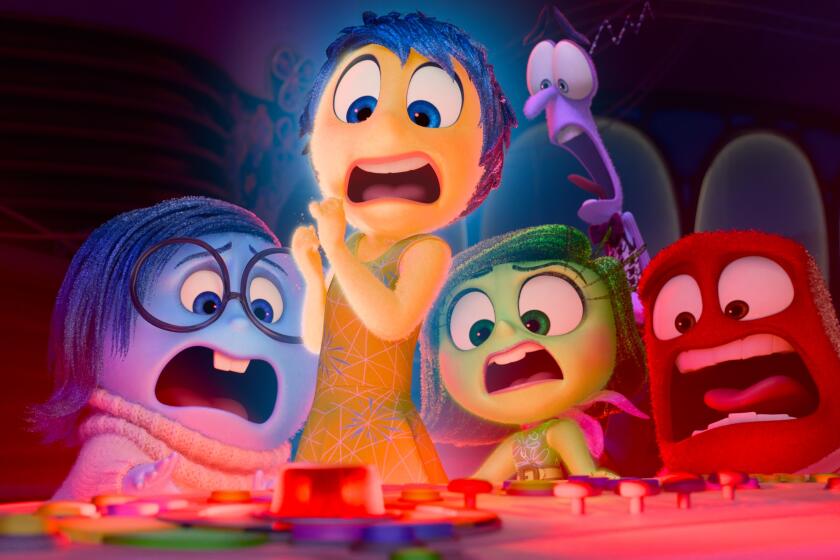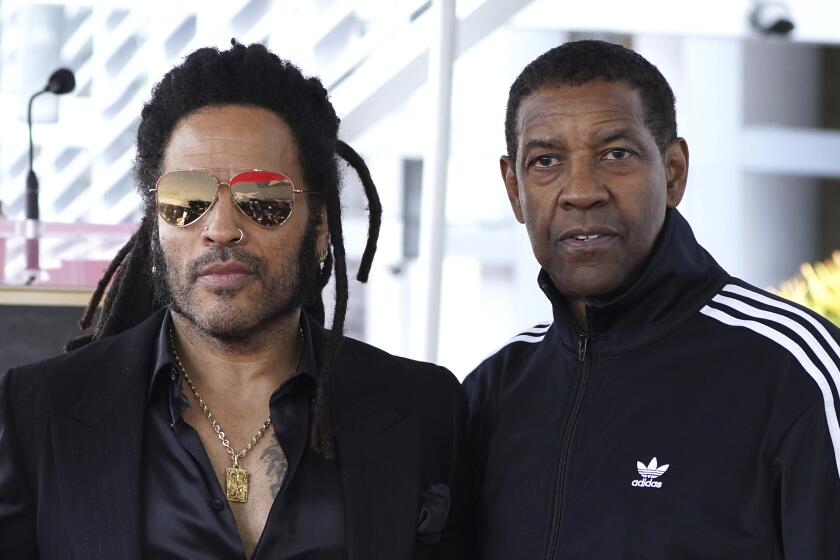Review: Wim Wenders’ moving ‘Pope Francis: A Man of His Word’ lets its subject ask the tough questions
German director Wim Wenders has recently devoted himself to profiling artists — the late German dancer and choreographer Pina Bausch in “Pina” (2011), the Brazilian war photographer Sebastião Salgado in “The Salt of the Earth” (2014) — and celebrating their art under the grand spotlight of the movie screen. The spirit of these documentaries is gentle and affirming, reveling in the visual and tactile beauty of their subjects’ creations, even as they leave the challenges of deeper criticism and analysis largely untouched.
“Pope Francis: A Man of His Word,” Wenders’ admirable and deeply admiring tribute to the 266th supreme pontiff, follows very much in this tradition, even if it cannot properly be described as a portrait of an artist. Or can it? If there is an art to infusing the papacy with a spirit of reform, challenging centuries-old Catholic dogma and earning the ungrudging admiration of atheists and skeptics the world over, then Pope Francis is surely its most skilled practitioner in eons, if also, inevitably, its most divisive.
For the record:
10:15 a.m. May 18, 2018An earlier version of this review said Pope Francis was the first pope from the Jesuit Church. The Jesuits are not a church, but a congregation within the Catholic Church.
His reign has been unprecedented in any number of ways. Born Jorge Mario Bergoglio in Argentina, he is the first Jesuit pope, the first from the Americas and the first to take the name of St. Francis of Assisi, who was revered for his life of simplicity (dramatized here in a few clumsy black-and-white staged scenes) and his devotion to the poor. In these and other respects, the film makes clear, Pope Francis has more than lived up to his namesake.
“We can all get by with less,” he declares, a principle he upholds in his own life by dwelling in a modest apartment (as opposed to the lavish quarters occupied by his predecessors in the Vatican) and at one point getting around in a small, clean-energy vehicle. He is not only an outspoken critic of poverty but also a champion of refugee rights and a defender of the environment, restoring a series of much-politicized causes to the natural extensions of the gospel that they are.
We see him giving voice to these and other issues all over the world, addressing migrants at a camp in Rome, gatherers at a Holocaust remembrance ceremony at Yad Vashem and survivors of the devastating 2015 typhoon in the Philippines. He washes the feet of prisoners and blesses children at a hospital in the Central African Republic.
Wenders, granted remarkable access to his subject over several months, juxtaposes these moving public displays of charity and concern with a lengthy sit-down interview. He films the pope in close-up, allowing the viewer to bask at length in the beatific warmth of his smile and his infectious, magnetic way with language.
As the director notes in his own recurring voice-over, ‘Pope Francis has no weapons other than words.’ But what words!
As the director notes in his own recurring voice-over, “Pope Francis has no weapons other than words.” But what words! His rhetoric can be compassionate and humorous, fiery and bracingly down-to-earth. He extols the dignity of work, denounces a culture obsessed with material wealth and calls the global hunger epidemic “a scandal.” When a young girl asks when he knew he wanted to be pope, the sharp honesty of his reply (“Someone who has the desire to become pope doesn’t really like himself”) feels like a reinforcement of his authenticity, as well as his improbable rightness for a job he never envisioned for himself.
Critics across the political spectrum, of course, have questioned that rightness and will continue to do so as he enters the sixth year of his reign. Although Pope Francis is widely credited with having softened the church’s tone and shifted its direction with regard to such contentious topics as homosexuality and divorce, socially conservative and liberal observers alike have questioned his ability to effect meaningful change in an institution that has long prided itself on centuries of tradition and intractable authority.
Wenders never addresses these particular criticisms. A recent controversy in which Pope Francis defended a Chilean bishop accused of covering up acts of sexual abuse goes unmentioned, as do his occasional thinly veiled swipes at the policies of President Trump (who is seen briefly in news footage, along with Vladimir Putin, Barack Obama and other current and past world leaders with whom Pope Francis has met over the years).
The result doesn’t feel evasive so much as vaguely incurious, and its focus on the message over the man himself can be as impressive in its single-mindedness as it is frustrating. You may wish that Wenders had delved deeper in any number of ways, that he had engaged his remarkable subject beyond his role as a figurehead.
But if his refusal to do so costs the movie a certain dimension of complexity, it also keeps the emphasis on the radicalism and human impact of Pope Francis’ public words and deeds. And it slyly dispenses with that old canard that we must know the artist intimately to feel moved, humbled and astonished by his art.
-----------
‘Pope Francis: A Man of His Word’
In English, Italian and Spanish with English subtitles
Running time: 1 hour, 30 minutes
Rated: PG, for thematic material including images of suffering
Playing: The Landmark, West L.A.; Laemmle Monica Film Center, Santa Monica; Laemmle Playhouse 7, Pasadena; Laemmle Claremont 5, Claremont
See the most-read stories in Entertainment this hour »
Movie Trailers
More to Read
Only good movies
Get the Indie Focus newsletter, Mark Olsen's weekly guide to the world of cinema.
You may occasionally receive promotional content from the Los Angeles Times.
